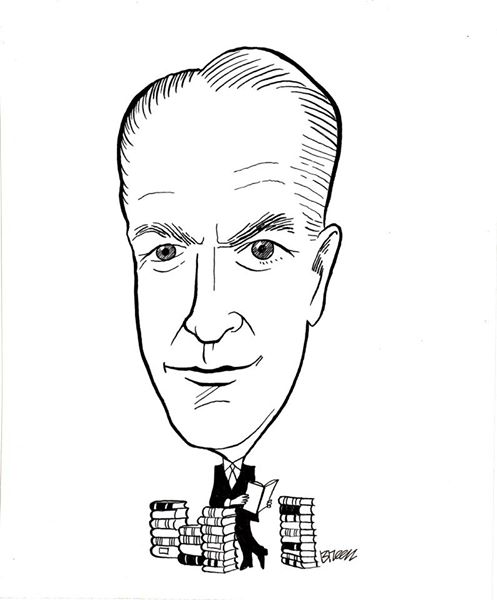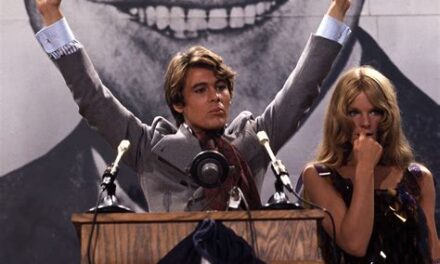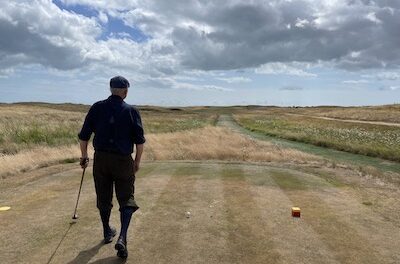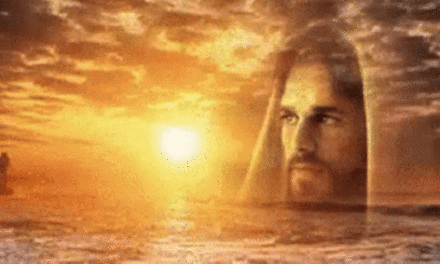The Ordinary Synod of the Bishops on the Family opened today to address the theme of “The vocation and mission of the family in the Church and the modern world.”
The world’s media will be watching the bishops very closely, expecting them to ratify “changes” to the Church’s teaching on divorced Catholics and hoping for “changes” to the teaching on homosexuality. Journalists conveniently forget, what most of them know, that the core of Church teaching does not change. However, some of the bishops want to discuss precisely what this “core” really is. And that is unsettling.
The issue of homosexuality was raised by Pope Francis himself when he declared early in his papacy, ““If someone is gay and he searches for the Lord and has good will, who am I to judge?,” deliberately using the English word, “gay.”
This remark released an avalanche of comment both from within the Church and out that has continued unabated since it was made July 29, 2013. And to ensure this issue is brought before the synod, Monsignor Krzystof Charamsa, a member of the Congregation of the Doctrine of the Faith since 2003, “came out” by declaring to an Italian newspaper that he was an active homosexual and living with a “partner.”
Monsignor Charamsa explained his reason for giving the interview:
“The timing is not intended to pressure anyone, but maybe a good pressure, in fact a Christian participation, a Christian voice that wants to bring to the synod the response of the homosexual believers to the questioning of Pope Francis.”
Within 24 hours, Monsignor Charamsa was fired from his Vatican post and told by his Polish ordinary that he may well be stripped of his priestly faculties.
It’s important to remember that when the US bishops released their  2004 report on the priest’s pedophile crisis, the report itself revealed it was not pedophilia that was the problem but homosexual priests having sexual contact with post-pubescent boys and teenagers. Though 90% of the 400 victims listed in the report were post-pubescent, both the bishops and the media ignored the significance of this finding.
2004 report on the priest’s pedophile crisis, the report itself revealed it was not pedophilia that was the problem but homosexual priests having sexual contact with post-pubescent boys and teenagers. Though 90% of the 400 victims listed in the report were post-pubescent, both the bishops and the media ignored the significance of this finding.
When the report was released at the National Press Club, I asked then USCCB president, Bishop Wilton Gregory, why the ramifications of this statistic were not highlighted in the report. The bishop acknowledged the statistic and then asked for another question.
Bishop Gregory’s determination to look away from the problem is not unique — it appears most of the leadership and laity in the Church have wanted to ignore it as well. Why? Because it would force them to ask, just what percentage of Catholic clergy are homosexual? And, how many of those homosexual priests are active? Most importantly, they would be led to ask whether or not either answer makes any difference to them.
Some years ago I surveyed all the available data on the percentage of homosexuals in the priesthood. When I published my findings and reported on them at a meeting of DC conservatives, I was castigated in a way that totally surprised me. Even my friends at the meeting told me I was out of line, in spite of the fact that I done the research. I will not repeat my findings here, rather I will only state the obvious: The percentage of homosexual priests in the Catholic Church is substantial, so substantial that the drama now underway at the Vatican synod was inevitable.
The July, 2013 comment of Pope Francis pricked a balloon that was ready to burst, and now we are watching as the air which came out slowly at first is forming a wind sweeping through the Church.
Here is what most Catholics know about the Church’s teaching on homosexuality:
- Homosexuality is an “objective disorder” of the human person (CCC #2358).
- Homosexual acts are “intrinsically disordered” and, therefore, always sinful (CCC #2357).
- Homosexual attraction, in itself, is not sinful, but is evidence of an “objective disorder” (CCC #2358).
- Homosexuals are “called to chastity” (CCC #2359).
- Homosexual men with “transitory” homosexual desire may be ordained deacons after three years of prayer and chastity.
- Homosexual men with “deeply rooted homosexual tendencies” or who are sexually active cannot be ordained.
(For #5 and #6 see “Instruction Concerning the Criteria for the Discernment of Vocations with regard to Persons with Homosexual Tendencies in view of their Admission to the Seminary and to Holy Orders,” a document published in November 2005 by the Congregation for Catholic Education.)
Since the Church’s policy toward the ordination of homosexual men is an “Instruction,” it is subject to change, which I am sure is on the mind those bishops hoping for “changes,” led by Cardinal Kasper, at the synod. However, the Church cannot, and will not, change its teachings on #1-4, a fact which I am confident Pope Francis will confirm at the synod.
It’s important to notice the prudential nature of the Church’s instruction regarding the ordination of homosexuals. The matter is not presented as black and white, the Church recognizes that the individual circumstances of each man should be respected, and any decisions regarding suitability for ministry should be based upon the individual, not caricatures of homosexual lifestyles.
I’m sure I am not the only Catholic who knows holy priests who have received the grace of chastity and have served the Church both generously and sacrificially. Thus, I would oppose any attempt to bar all men with homosexual tendencies from the priesthood. This would not only deny the heroism of countless priests but also the grace of God available to all of us to govern sinful desire.
But it’s clear, at least to me, that Cardinal Kasper and his co-conspirators are pressing for changes to the unchangeable, namely, the nature of homosexual desire, the moral state of homosexual acts, and, finally, the licitness of homosexual unions.
I doubt if Pope Francis realized his common sense call to charity and compassion towards homosexuals would bring him to face to face with his bishops over the fundament of Church teaching. I, for one, believe the Pope will do exactly what his role as Vicar of Christ calls for — to protect and promulgate the “sacred deposit” of Church teaching.















Deal, I agree with you. Just as Mons.Charamsa’s outing shocked so many of us – how does someone with such a “beam” in their eye get to work in the Congregation of the Doctrine of the Faith where you would be counting on higher than average adherence to truth and doctrine! The poison of
this delusion appears to be widespread enough to be through to the leadership of the Church. The
Church must rid itself of this poison aknowledging the insights that Fr. and Saint Peter Damian (1007-1072) wrote about. St. Peter Damian goes so far as to say that the Holy Sacrifice of the Mass is not accepted by God when offered by such priests! This is a scary thought. If I am wrong here, I hope some better informed Moral Theologian in your readership will correct me please.
Though not really dodging the subject of homosexuality and the Church, I want to ask about something that goes in a slightly tangential direction:
The Polish priest in the discussion was living with his partner and, I presume, sexually active. There are implications and speculation that countless priests also are gay and sexually active. By my understanding, priests take a vow of celibacy. If a priest who was a ranking official with the Vatican announced that he is heterosexual, living with a female partner and sexually active, I would hope that priest would face the same consequences as this man and that the outrage would be similar.
Or is it possible that just as the outrage and chastisement in this case seem to involve primarily the priest’s homosexuality, then celibacy isn’t an issue? Is it possible that just as there are gay priests who are sexually active, so too there are countless heterosexual priests who are sexually active?
I happen to know anecdotally that many young men who are in seminaries now are dating women, are sexually active and have no intention to stop once ordained.
Not that the Church should side-step the issue of homosexuality — keep in mind that a majority among a generation of Catholics and non-Catholics alike are in favor of “same-sex marriage” and one day in the not-so-distant future will produce the Church’s bishops, cardinals and popes. But Church leaders might do well to address what could be the true underlying sin and not just one of the (serious) symptoms.
The marital act is Life-affirming and Life-sustaining, and can only be consummated between a man and woman united in marriage as husband and wife. It is a sin to condone the engaging in or affirmation of sexual acts outside the marital act.
“Thus, I would oppose any attempt to bar all men with homosexual tendencies from the priesthood. This would not only deny the heroism of countless priests but also the grace of God available to all of us to govern sinful desire.”
Our call to Holiness is a call to overcome our disordered inclinations and become transformed through Salvational Love, God’s Gift of Grace and Mercy. A man who had a desire to overcome a disordered same-sex sexual attraction, would not identify himself or someone else as an object of sexual desire/inclination/orientation.
Prior to being elected pope, Francis made this statement in support of same-sex sexual unions:
Page 117, of the pope’s book, On Heaven and Earth, in regards to same-sex unions
“If there is a union of a private nature, there is neither a third party, nor is society affected. Now, if this union is given the category of marriage and they are given adoption rights, there could be children affected. Every person needs a male father and female mother that can help them shape their identity. – Jorge Mario Bergoglio
Jorge Mario Bergoglio’s belief in regards to same-sex sexual unions is consistent with the members of the lobby who condone same-sex sexual acts and same-sex sexual relationships as long as they are not called marriage.
Since it is true that God Is The Author of Love, Life, and Marriage, the purpose of which can only be what God intended, to condone the engaging in or affirmation of same-sex sexual acts, is to deny that God Is The Author of Love, Life, and Marriage, and makes one an apostate to our Catholic Faith.